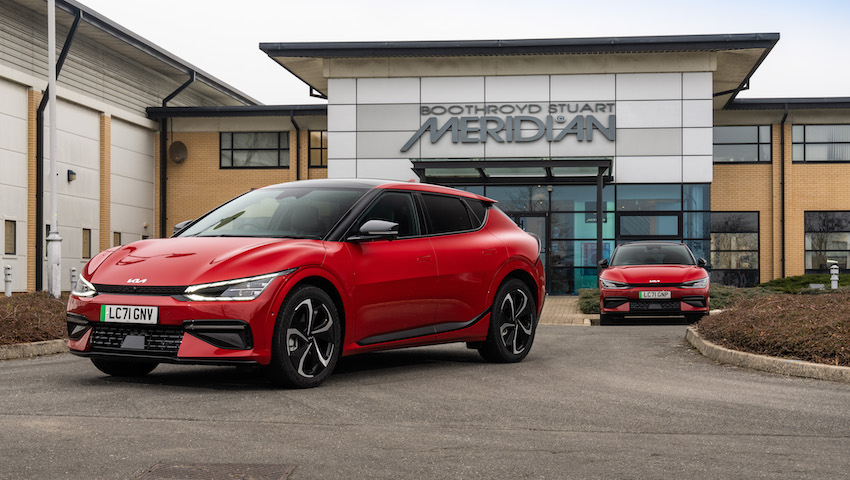
How the music you listen to can impact your EV driving range
The type of music playing through the audio system of an EV can impact real-world driving range, according to a study by Kia UK.
The study, which was carried out by Kia UK and a leading authority in acoustics, noise, psychoacoustics and sounds science, found that playlists featuring ambient classical pieces and famous symphonic-form compositions from the likes of Beethoven can help drivers sustain battery power far better over other types of music genres and artists, including The Weekend, Kanye West and Adele.
Up-tempo pop, hip-hop, and even soul ballad pop were found to impact EV range due to the effect these genres have in influencing driver behaviour and driving style.
Kia’s fully-electric EV6 crossover was used for the study and was overseen by Dr Duncan Williams, a lecturer at the University of Salford’s School of Science, Engineering and Environment. Dr Williams also co-founded WaveTrace, a psychoacoustic consultancy specialising in biometric tracking of human responses to sound and music stimuli.
The trial saw participants – all of whom had never driven an all-electric vehicle prior to the study – get behind the wheel of an EV6 to complete a predefined test route. Over the 18- mile route, a fixed playlist was played through the car’s Meridian Audio sound system, featuring different music genres and songs.
Before taking the EV6 on the 18-mile test run, each participant was fitted with an Empatica E4, a medical grade wearable device that records biometric measurements.
Dr Williams oversaw the analysis and data measurements from the Empatica E4, with the device focusing on infrared thermopile (shifts in skin temperature), electrodermal activity (fluctuating resistance of the skin that is altered by sweat), and blood volume pulse using a PPG optical sensor. Heartbeat and heat rate variability were also calculated.
“What we found from only two days of testing was that music really can have a dramatic influence on the real-world driving range of an electric vehicle,” said Dr Williams.
“Different songs resulted in varying electrodermal activity and blood volume increase for each of the participants. This had a knock-on effect on driving style, and ultimately influenced the real-world driving range of the EV6.
“In short: if you want to go further, listen to the likes of Beethoven and other relaxing classical music; if you’re not worried about range dropping a little more quickly, by all means put on some more high tempo tracks.”
Classical music – such as Beethoven’s ‘Symphony No. 9’ – creates a calm, focused and balanced environment for the driver, resulting in a driving style that is composed and level- headed. This genre of music preserved battery power and real-world driving range of the EV6 the best. Test participants drove up to four times more efficiently while listening to Beethoven than certain other tracks on the test playlist.
At the other end of the spectrum, up-tempo pop songs – such as The Weeknd’s ‘Blinding Lights’ – were found to provoke intense emotion in the test drivers. This resulted in a more spirited and energetic driving styles that made them twice as inefficient as they tapped into more of the car’s performance.
Bridging the EV range gap between Beethoven and The Weeknd is Adele. The British singer songwriter’s 2015 hit ‘Hello’ was found to create an arresting backdrop for some test drivers. The song’s slower pace is offset by building crescendos, encouraging a
more emotive driving style that also had the potential to reduce the EV6’s driving range during the test – though not as much as faster-paced tracks.
Drivers weren’t fully briefed on what the research was exploring, and tracks on the playlist didn’t necessarily correlate with the same sections of road from one driver to the next, due to changing road conditions and driver behaviour. The results therefore suggest a correlation between certain types of music and greater or reduced energy use.